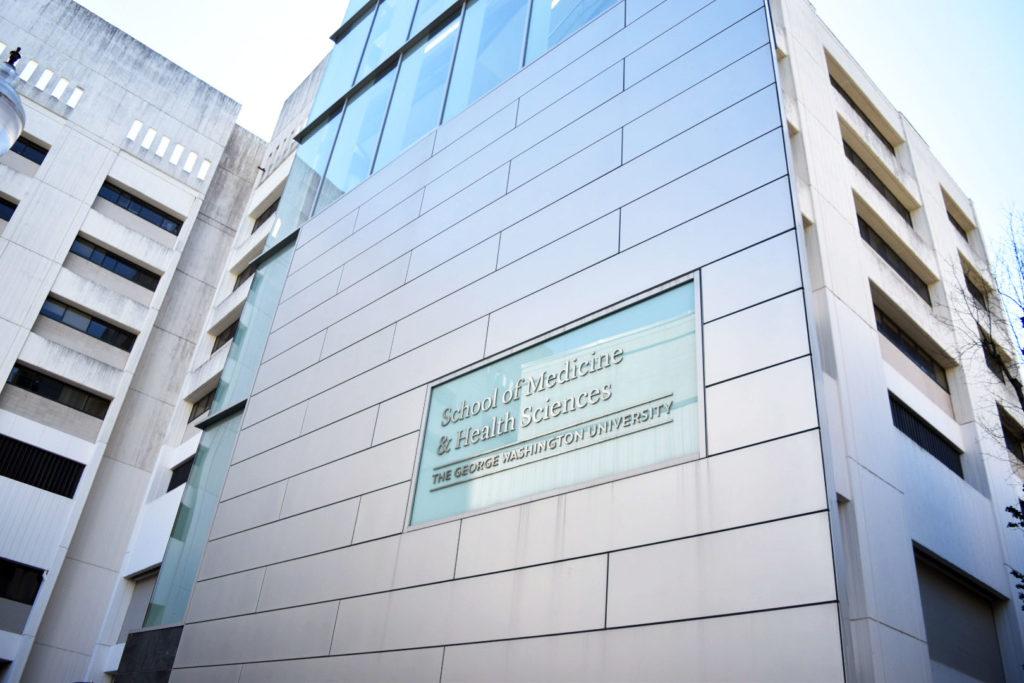Medical residents and fellows at the School of Medicine and Health Sciences voted overwhelmingly to unionize Thursday.
SMHS residents and fellows voted 253-16 Wednesday and Thursday to join the Committee of Interns and Residents — a subsidiary union of the Service Employees International Union. Maryssa Miller, a physician who helped organize the unionization effort, said the union will form a bargaining committee in the coming weeks representing residents’ departments like internal medicine, emergency medicine and obstetrics and gynecology.
Miller, a first-year internal medicine resident physician, said the union will represent 455 residents and fellows employed by SMHS who work at GW Hospital.
“First and foremost, forming a union gives us a voice at the table,” Miller said. “That is something that is incredibly important to all of us because we are the physicians that are at the frontlines taking care of patients, so we have this unique window into knowing what is needed for patients and how to improve our medical training.”
She said GW residents and fellows have discussed unionizing since at least 2018, but the pandemic accelerated the efforts.
“The COVID pandemic really brought to light a lot of the exploitation in the medical field and a lot of its injustices and simply burnout,” Miller said. “So with that, over the past several years, residents have been talking about it.”
University spokesperson Julia Metjian said the University “remains committed to supporting and training” residents and fellows regardless of the election outcome.
“The university values their daily contributions to our academic medical enterprise,” she said.
Miller said GW resident and fellow physicians first met with CIR in November 2022 to begin planning unionization. She said although individual physicians and departments have “unique needs,” many union members hope to improve resident salaries, health care benefits, medical leave and parental leave.
She said she regularly has to address administrative, “essentially nonphysician tasks,” taking time away from updating patients and the families at their bedside.
“I’m a firm believer that in order to better take care of patients, we have to be able to take care of ourselves,” Miller said. “Oftentimes, I personally find myself having to choose between going the extra mile and providing my patients with the exceptional care I know they deserve and my own personal health and wellness.”
She said officials sent out union authorization cards in March, which a supermajority of SMHS fellows and residents signed. She said officials approached the University with the cards asking them to voluntarily recognize the union, but the University declined, forcing prospective union leaders to approach the National Labor Relations Board two days later for the official union vote.
Union leaders first submitted paperwork to NLRB March 3 to mail in ballots for a union election, but they resubmitted the paperwork March 22 to switch to in-person voting.
The salary for first-year residents at SMHS was about $64,038, according to the SMHS website. Medical students across American medical schools accrue roughly $200,000 of medical debt after graduating on average, according to the American Medical Association.
Miller said she spends half of her salary on rent in the District, making it difficult for her to pay off her student loans and health care. She said she worked 16 hours on her first day at GW and realized that would “be the norm, not the exception.”
She said GW union leaders plan to send a survey to residents and fellows to seek their input before beginning the bargaining process.
The SMHS Instagram account made a pair of posts about the election, mentioning mandatory union dues and saying a union would “bind everyone in the potential bargaining unit.” One of the posts said future residents and fellows would be unable to vote on unionizing.
SMHS Dean Barbara Bass said in a letter emailed to residents and fellows earlier this month she did not think a union was necessary for residents and fellows because they can advocate for themselves.
“Throughout my career, I have been gratified by how we, as physicians, collaborate to care for and to advocate for our patients,” the letter states. “This advocacy is focused on patient outcomes through effective integrated care and by requests to those in leadership to provide us with the resources needed to effectively deliver the best patient care.”
Rory Quealy contributed reporting.







